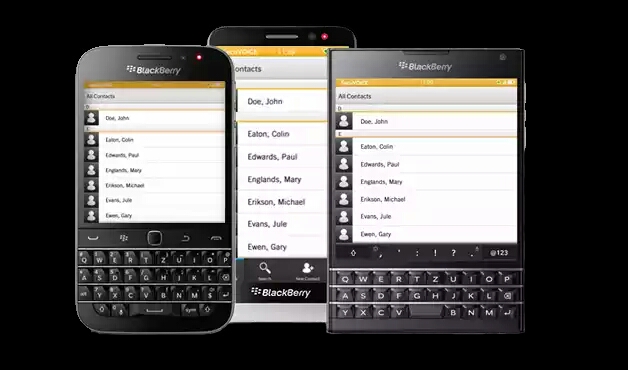Tech
Blackberry To Stop Production Of Phones
BlackBerry announced Wednesday it would halt in-house production of smartphones, marking the end of an era for the once-dominant Canadian tech firm.
Ontario-based BlackBerry said it had reached a deal to outsource production of its phones to an Indonesian partner, and would instead concentrate on software and services.
Handsets with the BlackBerry name will be produced under license by PT Tiphone Mobile Indonesia Tbk, a statement by the firms said.
BlackBerry, which a decade ago was among the world’s largest smartphone makers, has seen its global market share slip to less than one percent as Apple and Android devices have dominated.
As the market shifted, BlackBerry has sought to refocus on software, including security applications, and the latest announcement takes the company out of the handset market entirely.
“We are reaching an inflection point with our strategy. Our financial foundation is strong, and our pivot to software is taking hold,” said chief executive John Chen, pointing to a doubling of software revenue in the last fiscal year.
“The company plans to end all internal hardware development and will outsource that function to partners. This allows us to reduce capital requirements and enhance return on invested capital.”
The Waterloo, Ontario-based company has made several efforts in recent years to find new customer niches as its smartphone handset sales continued to stagnate in the face of competition.
It had hoped its first Android-operating smartphone launched last year would help restore the company to its former glory.
But sales were lackluster.
Earlier this year, BlackBerry announced it was killing off its Classic smartphone with a physical keyboard — once the workhorse of the smartphone market — as part of a modernization of its lineup.
But the company has continued to bleed red, posting on Wednesday a US$372 million loss in its second quarter ending August 31.
Revenues also fell to US$334 million, from US$490 million during the same period last year. The company did not report details on its smartphone shipments.
– Rebooting BlackBerry –
Some analysts praised the decision to get out of smartphone sales, at a time when the worldwide smartphone market has turned relatively flat.
“The devices business has been a distraction for both BlackBerry and investors for a number of years now,” International Data Corporation analyst John Jackson told AFP.
The end is “good news,” he said, noting an uptick in BlackBerry’s stock price in morning trading.
Shares rose more than four percent to US$8.22 in New York at 11:00 am local time (1500 GMT). This price, however, remains far below a five-year high set in October 2011 of US$23.97.
Originally known as Research in Motion, the company introduced its first internet-connected devices in the early 2000s, and earned a dedicated following of “CrackBerry” addicts.
But its luster faded with the introduction of the iPhone in 2007 and the large number of low-costs Android handsets that followed.
By moving out of hardware, BlackBerry can focus on its various business services such as messaging, cybersecurity and tracking connected devices.
Jackson said the move “should help investors, BlackBerry customers, and the company itself focus squarely on the software and services business which is fiercely competitive in its own right, but also the business that BlackBerry has been in all along.”
However analyst Michael Walkley at Canaccord Genuity said the new strategy has risks as well.
“We believe the lowered focus on hardware could have an adverse impact on its installed base of loyal BlackBerry hardware customers, potentially switching to new software and security solutions on competing smartphones over time,” he said in a research note.
Follow us on social media:-

 Celebrity Gossip & Gist1 day ago
Celebrity Gossip & Gist1 day ago“The money wey dem pay me don expire” – Moment Burna Boy stops his performance at the Oando PLC end of the year party (Video)
-

 Economy1 day ago
Economy1 day agoGoods worth millions of naira destroyed as fire guts spare parts market in Ibadan
-

 Celebrity Gossip & Gist2 hours ago
Celebrity Gossip & Gist2 hours agoMoment stage collapses on Odumodublvck during concert performance (Video)
-

 Economy2 hours ago
Economy2 hours agoPresident Tinubu cancels Lagos engagements in honor of food stampede victims





